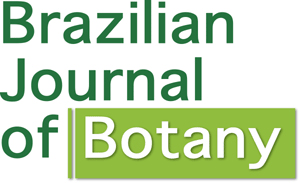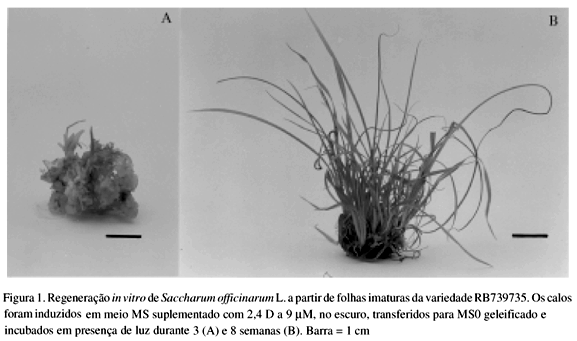In vitro morphogenesis from immature leaf explants excised from field-grown plants of two Brazilian sugarcane (Saccharum officinarum L.) cultivars (RB739735 and RB72454) was evaluated. Explants were obtained from 6-9 month-old plants and cultured on solid MS medium supplemented with 9 muM 2,4-dichlorophenoxyacetic acid (2,4-D). Cultures were maintained in the dark for four weeks. The efficiency of callus formation was influenced by the genotype. Calli derived from cv. RB72454 were mucilagenous and did not originate plants. Explants from cv. RB739735 formed yellow, friable embryogenic (type II) calli, which kept their proliferative capacity for at least six months. Upon transfer to hormone-free medium and light conditions, 56% of these calli regenerated plants, resulting in an average recovery of 50 plants per callus, after two months of culture. Plants developed further and originated lateral shoots in liquid MS0 medium. No phenotypic abnormalities were observed. Growth inhibition of calli in response to different concentrations of antibiotics used in genetic transformation protocols was also evaluated. Inhibition was observed in the presence of 128.7 muM kanamycin and 94.8 muM hygromycin. No inhibitory effect of geneticin (G418) was obtained at concentrations between 43.3 and 86.6 muM.
Sugarcane; antibiotics; in vitro morphogenesis


